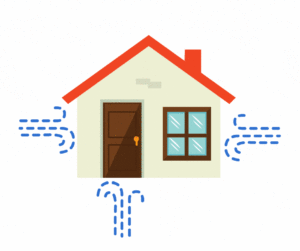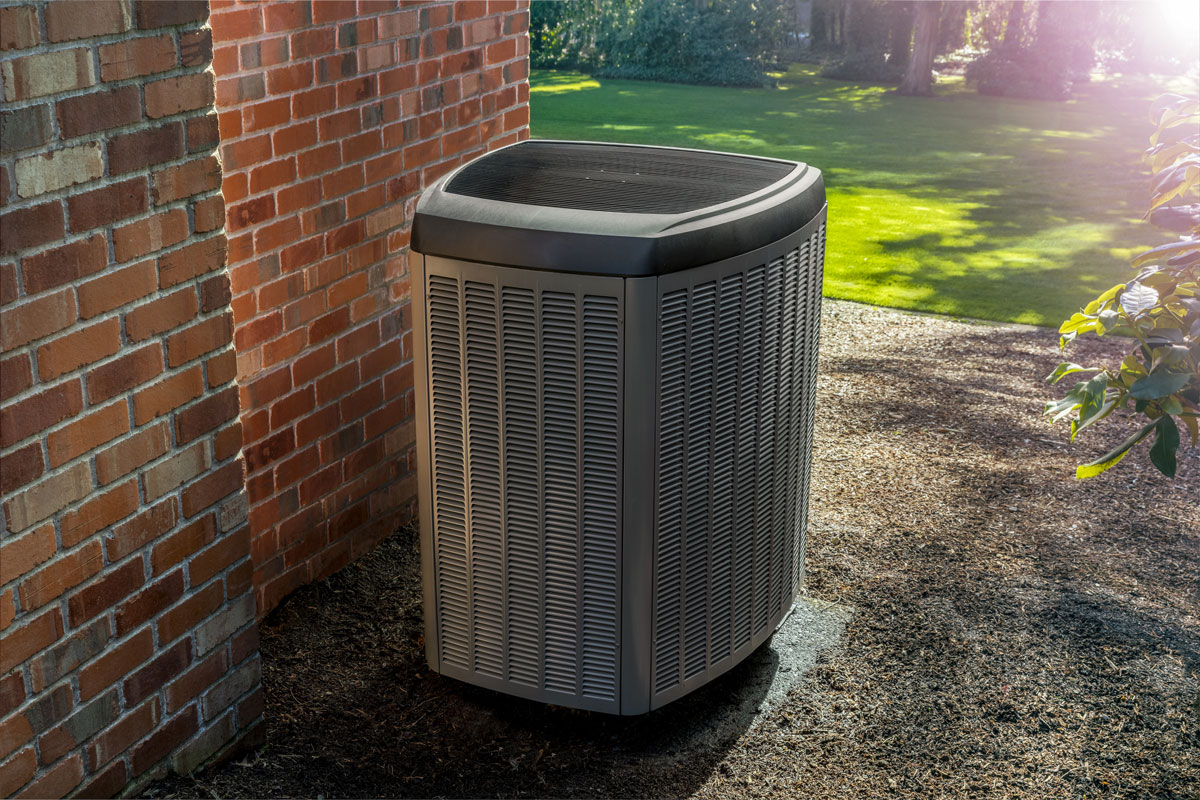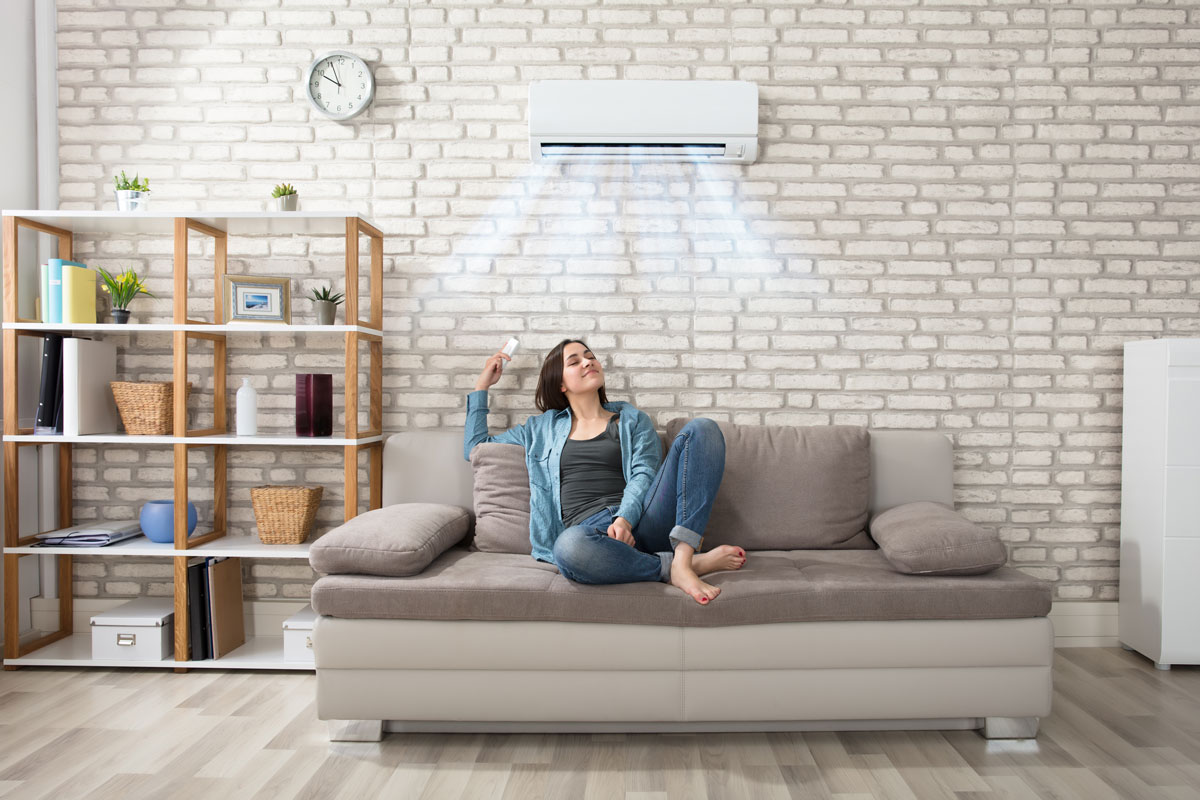Would you be interested in a home comfort solution that will keep you warm in the winter and cool in the summer, allow you to maintain different temperatures in each room in your house, that the government will help you buy and install, and will save you big money on your energy bills? If you said yes, then you need to take a close look at mini-split heat pumps that come in two options: ducted mini-splits and ductless mini-splits.
Heat pumps have always had loyal fans, but in recent years mini-split heat pumps have seen a surge in popularity in the HVAC market, for all the above reasons and more. Read on to learn why both builders and homeowners are increasingly choosing mini-split systems.
Mini-Splits Are Energy Efficient
One of the biggest benefits of ductless mini-split systems is their superior energy efficiency compared to other types of systems. Traditional forced-air HVAC systems lose as much as 30% of the energy they produce through their ductwork as the warm or cold air travels through them, meaning the system has to work harder — and use more energy — to keep the home comfortable. Ductless mini-split systems eliminate this loss by delivering warm or cool air directly into the living spaces.
The energy efficiency of mini-splits is reflected in their high Seasonal Energy Efficiency Ratio (SEER) ratings. Many models boast SEER ratings of 20 or higher, far exceeding the efficiency of conventional systems. That translates into significant savings on your energy bill while contributing to sustainability goals. And because of their excellent energy efficiency, mini-split heat pumps qualify for many government grants and rebates, making buying and installing a mini-split one of the most cost-effective HVAC solutions.
Ductless Mini-Splits Provide Flexible Comfort Zoning
Another energy-saving and comfort-enhancing feature of mini-split systems is zoned heating and cooling. With the ability to individually control the temperature settings on the indoor ductless units throughout the home, homeowners can create separate comfort zones. This means you can cool or heat only the rooms you are using while keeping the settings low in others, saving energy and money and increasing comfort. This is in contrast to traditional systems where the temperature is set for the whole house, and can only be controlled in individual rooms by closing vents, an inconvenient and inefficient solution.
Ductless Mini-Splits Are Easy to Install
Installing a ductless mini-split heat pump is much less time-consuming and invasive than a traditional HVAC system since there’s no need to install ductwork throughout the home. This makes them a great choice for retrofitting older homes or adding climate control to new additions. Easy installation also means lower installation costs, making them an attractive option for budget-conscious homeowners. Additionally, the flexibility in placing individual room units allows for creative solutions in homes with limited space or unusual architectural features.
Mini-Split Systems Improve Air Quality
Mini-split systems can significantly improve indoor air quality. By eliminating ductwork, they reduce the accumulation of dust, allergens and other pollutants that can build up and be distributed through the home with traditional forced-air HVAC systems.
Many ductless systems also come equipped with advanced filtration technologies, further increasing their ability to keep the air you breathe clean. This helps to prevent the many health problems that can be caused by poor indoor air quality and is especially beneficial for those with asthma, allergies or other respiratory issues.
Space-Saving Design
The compact design of ductless mini-split systems can be a big advantage for homeowners, especially in homes where space is at a premium. The indoor units can be mounted almost anywhere — on walls, ceilings or floors — providing great flexibility to accommodate different floor plans and furnishings. The space-saving design of mini-split systems allows homeowners to maximize their living spaces while keeping their rooms looking clean and uncluttered.
Mini-Splits Are Quiet
Modern mini-split systems are known for their quiet operation. The compressor, typically the noisiest part of an air conditioning system, is located outside, while the indoor units operate at very low noise levels. This quiet performance is particularly appealing in bedrooms, home offices and other spaces where noise can be a problem.
Mini-Splits Are for Both Heating and Cooling
A modern mini-split system can both heat and cool your home, providing year-round comfort in a single unit. Older models were known to lose some of their efficiency at extreme temps, but new technology has largely eliminated that. Many homeowners in areas that experience extreme temperatures use their mini-split heat pump for most of the year with a backup furnace in the winter to provide an extra layer of comfort security.
As energy costs continue to rise and homeowners become more focused on efficiency and sustainability, the appeal of mini-split systems is likely to grow even more. Advancements in technology, such as improved smart home integration and even higher efficiency ratings, are expected to drive continued high demand in the mini-split market.
Contact Apex Air to learn more about how a ductless mini-split system can work for you.




